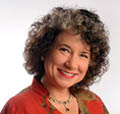
When I was a child, neither schools nor families spent all that much time observing our eccentricities. Kids did strange things but the adults shrugged and didn't pay attention unless cops or emergency medical personnel were involved.
In second grade, I shared a desk with a kid who chewed pencils as rhythmically as somebody trying to win a corn-on-the-cob eating contest. It was no big deal. I grew to find the sound of his crunching mildly soothing.
The teacher had to react, of course, and here's what she did: She told him he had to start bringing his own supplies because she was running out. It sounded like what teachers said about chewing gum: "I hope you brought enough for the rest of the class."
The kid had an oral fixation significant enough to occupy both Sigmund Freud and Melanie Klein for years — or maybe he just had teeth of steel — but either way, the school's only official advice was to bring his own Ticonderoga No. 2s to class because his habit was becoming too expensive.
Nobody even thought to send him to a counselor. He's probably either a dentist or a carpenter now, or else he's working at Staples. No girl who knew him in elementary school wanted to kiss him but otherwise he seemed to grow up just fine.
My problems, both emotional and cognitive, had to do with getting stuff in the right order: I couldn't do it.
I would start writing words but often I'd begin with the second letter. I'd write, "tree" but begin with the letter "r" and then fill in the "t" in after the word was complete — if I noticed it. Lots of times I didn't notice it.
My mother was not a saver of childhood documents so I can't offer evidence but I remember my little papers all too well, with their big red circles at the beginning of things.
Apart from that quirk, I loved to write. I liked to think I was merely getting ahead of myself but, if the particular teacher were a stickler for niceties and not one to offer the benefit of the doubt, I would discover that my grades were falling. I learned to compensate and make sure I checked my work.
I'd do a similar thing with arithmetic, except it was more systematic: I would transpose numbers, always reversing the last two in any sequence.
I mastered the section on multiplication only because I memorized the times-tables. My teacher felt it was a form of cheating since it didn't reflect any understanding of the principle behind the exercise. She was correct.
She was proved even more correct concerning my total inability to perform even the most basic tasks in her class when I could not — not for praise, failing grades or the misery of being kept after school on Halloween — complete the most simple problems in long division.
I felt silly when I mixed up my letters because I knew what I meant to say and so did the teacher, even when the words were fumbled. But I felt like an idiot in math because numbers, unlike letters, made no sense if they weren't in the perfect order.
Only as an adult have I come to understand that these are oddly wired parts of my brain. My reversal of figures is so pronounced that anybody who has ever lived or worked with me will automatically adjust the last two digits if I'm taking down a phone number. The fact that I start words with the second letter is obvious as I glance at 40 years of journals I've kept, the first letters always squeeze into each other like commuters at rush hour.
Yet learning how to work within the boundaries of my own limitations, (especially once calculators became cheap) has had its own benefits.
While tutoring and therapeutic intervention can work wonders, so can a child discovering her own way of negotiating the world work wonderfully. She might invent ways that, at least for her, make it all add up.
Comment by clicking here.
Gina Barreca is a columnist for The Hartford Courant.



 Contact The Editor
Contact The Editor
 Articles By This Author
Articles By This Author